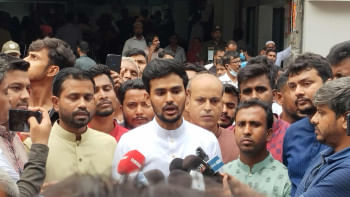Pharmaceuticals export doubles in two years
Bangladesh's pharmaceuticals export grew by around 11 per cent during July-February period of the current financial year and has been double in just two years.
Pharmaceuticals export rose to $15.72 million in the first eight months of the 2005-06 financial year while it was $14.21 million during the same period of last fiscal year, according to Export Promotion Bureau (EPB) statistics.
Bangladesh fetched $21.26 million in the 2004-05 financial year by exporting pharmaceutical products to different countries and the earnings had been $12.69 million in the 2003-04 fiscal and only $9.05 million in the 2002-03 fiscal year.
The country now exports a wide range of pharmaceutical products covering all major therapeutic classes and dosage forms to around 62 countries including some developed markets, sources said. High-tech specialised products like inhalers, suppositories, nasal sprays, indictable and infusions are also being exported.
"Some companies are now manufacturing high quality pharmaceutical products. As a result, we are exporting to some developed markets including European countries," said Md Shafiuzzaman, president of Bangladesh Association of Pharmaceuticals Industries (BAPI).
Overseas retail buyers apart, these companies are also supplying pharmaceutical products to some world-renowned hospitals and institutions like Raffles Hospital of Singapore, Jinnah Hospital of Pakistan, MEDs of Kenya, SPC of Sri Lanka and KK Women & Children Hospital of Singapore, according to BAPI.
There are now more than 200 small, medium, large and multinational companies in the country meeting around 97 per cent of the total demand. Novartis, Beximco, Square Pharmaceuticals, Aventis, ACI and Acme are some of the leading companies manufacturing and exporting pharmaceutical products.
In case of manufacturing and exporting pharmaceutical products, Bangladesh being a least developed country (LDC) now enjoys a patent waiver under a deal of World Trade Organisation (WTO).
The WTO council responsible for intellectual property approved a decision on June 27, 2002, extending until 2016 the transition period during which the least developed countries (LDCs) do not have to provide patent protection for pharmaceutical products.
It also approved a waiver for LDCs on exclusive marketing rights for any new drug during the period.

 For all latest news, follow The Daily Star's Google News channel.
For all latest news, follow The Daily Star's Google News channel. 



Comments